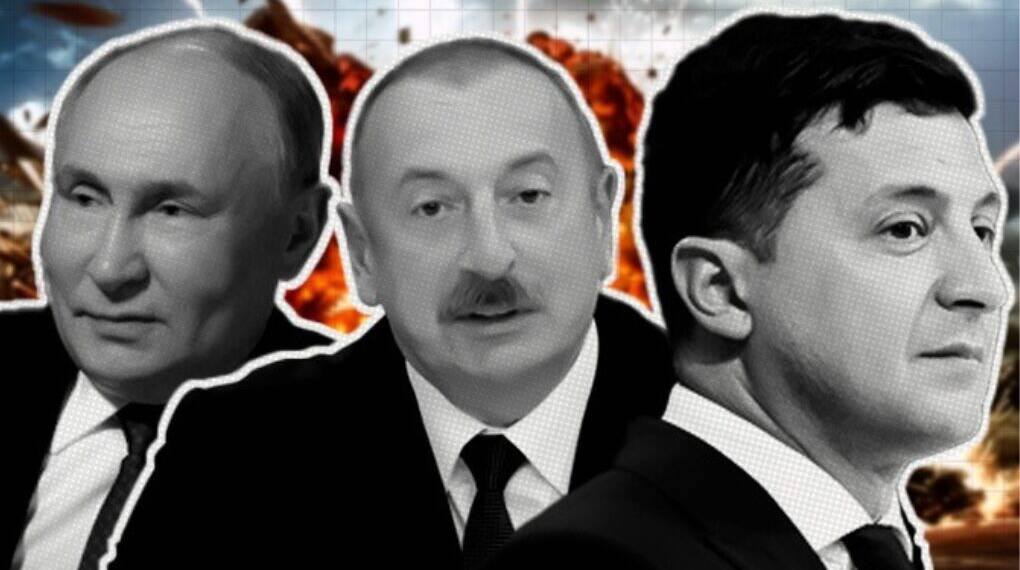Ukraine’s state-owned energy giant Naftogaz has reached a landmark agreement with Azerbaijan’s SOCAR to import Azerbaijani natural gas via the Transbalkan route—a corridor running through Bulgaria, Romania, and into Ukraine. This test shipment marks the first-ever delivery of Azeri gas along this path, a strategically significant development amid the ongoing pressures of the Russia-Ukraine conflict and Europe’s shifting energy landscape.
Diversifying Energy Supplies Amid Conflict
Since 2015, Ukraine has ceased direct gas imports from Russia following years of geopolitical disputes and conflict escalation, particularly the 2022 Russian invasion. Russian missile strikes in 2025 have further damaged Ukraine’s domestic gas infrastructure, leading to acute supply shortages and the lowest storage reserves seen in over a decade—13.9% below last year and at a 12-year low.
Ukraine has traditionally relied on reverse gas flows from European neighbors like Slovakia and Hungary, but the southern Transbalkan route remained underutilized due to higher transit tariffs and the risk of inadvertent Russian gas mixing in supplies passing through Southeast Europe. This new deal with Azerbaijan’s SOCAR, which routed gas directly through Bulgaria and Romania, represents a deliberate effort to bypass Russian infrastructure, reinforce supply security, and deepen Ukraine’s integration into diversified energy networks.
Strategic Importance of the Transbalkan Corridor and Azerbaijani Gas
The Transbalkan pipeline corridor, once primarily used for southbound Russian gas flows toward Southeast Europe, is being repurposed as a critical alternative route for non-Russian gas imports to Ukraine and the region. The corridor provides access not only to Azerbaijani pipeline gas transported via the TAP pipeline but also to liquefied natural gas (LNG) terminals located in Greece and Turkey, plus Romanian and potentially Bulgarian offshore gas resources.

Naftogaz CEO Sergii Koretskyi emphasized the deal as a “small volume but strategically important step” laying the foundation for long-term cooperation with SOCAR and expanding Ukraine’s gas supply diversification. Ukrainian Energy Minister Svitlana Grynchuk highlighted the route’s “extreme importance” for preparing for the heating season, enabling Ukraine to access multiple gas sources, reducing dependency risks, and stabilizing supply.
Implications in the Shadow of the Russia-Ukraine Conflict
This agreement has direct geopolitical consequences in light of the ongoing war with Russia. Ukrainian energy experts and officials are closely tracking gas origin to ensure no Russian volumes contaminate supplies, a persistent concern given Russia’s historical dominance and attempts to wield gas exports as geopolitical leverage. The rejection of Russian gas imports, intensified post-2024 after the expiration and non-renewal of the Gazprom transit contract, reinforces Ukraine’s defiant stance and desire for energy independence.
Russia’s gas exports to Europe have seen fluctuations, with a notable reduction in flows via TurkStream in mid-2025, even as pipeline infrastructure aimed at Moscow’s interests attempts to sustain revenue. Ukraine’s pivot to Azerbaijani gas and LNG avoids Russian transit fees and security risks, signaling a broader realignment of European energy dependencies away from Moscow.
NATO and European Union: Energy Security and Strategic Support
For NATO and the European Union, Ukraine’s diversification of gas sources is welcomed as a critical element of strengthening Ukraine’s energy resilience amid war-induced disruptions. Energy security is a core facet of wider European security strategy, as Russia’s energy exports have long been a tool for political pressure on Eastern Europe and more broadly.
The expansion of Azerbaijani gas supply supports EU goals of reducing Russian energy dependency across the continent, aligning with initiatives like the EU’s REPowerEU strategy which emphasizes diversified and sustainable energy supplies. Cooperation with Azerbaijan, already a significant gas exporter to Europe, including its multi-year contracts with Germany, represents a strategic boost to the Southern Gas Corridor and energy interconnections.
Furthermore, the Transbalkan corridor deal complements NATO’s broader assistance to Ukraine, as energy stability is essential to maintaining Ukrainian civilian infrastructure and military capacity during conflict. Ensuring diversified, secure gas supplies reduces vulnerability to Russian coercion and strengthens Ukraine’s economic and military endurance, which aligns with allied security objectives.
Challenges and Future Prospects
Although the initial shipment volume is small and specific contractual details remain undisclosed, the deal opens avenues for longer-term cooperation. Ukrainian authorities plan to build underground gas reserves to approximately 13 billion cubic meters for the 2025/26 heating season, up from a depleted level of around 9 billion cubic meters as of mid-July 2025. The Azerbaijani imports contribute to this goal, alongside continued reliance on European LNG and transit partners.
However, transit tariffs via the southern route remain a challenge, although recent regulatory approvals aim to reduce costs and improve competitiveness. Ukraine’s continuous monitoring of gas origin reflects the ongoing complexity of ensuring clean supply lines free from Russian interference. Additionally, expanding pipeline interconnections and infrastructure investments across Southeast Europe are critical for fully realizing the Transbalkan corridor’s potential.
Also Read: Russia vs Azerbaijan: Next Ukraine? US warns its citizens to leave Baku immediately
Ukraine’s inaugural Transbalkan gas deal with Azerbaijan’s SOCAR marks a pivotal strategic shift, driven by the ongoing Russia-Ukraine conflict and the wider European imperative to reduce energy dependence on Moscow. By securing direct access to Azeri gas through the alternative and secure Transbalkan corridor, Kyiv is significantly strengthening its energy security while diminishing its reliance on Russian supplies—an essential factor for both civilian infrastructure and military resilience amid continued hostilities.
This agreement also represents a bold act of defiance against Russia’s longstanding dominance in the regional energy sector. By bypassing Russian-controlled pipelines and transit routes, Ukraine not only reduces Moscow’s economic and political leverage but also disrupts Russia’s capacity to weaponize energy exports as a tool of coercion during the conflict.
The deal reflects growing regional solidarity with Ukraine and reinforces Kyiv’s commitment to diversify its energy portfolio in the face of Russian aggression, aligning closely with the strategic interests of its European allies.
From the perspectives of NATO and the European Union, Ukraine’s diversification of gas supplies enhances regional energy stability and supports broader geopolitical efforts to counter Russia’s influence. This initiative complements EU strategies such as REPowerEU, which emphasize energy security through diversification and the strengthening of alternative supply chains.
As Ukraine prepares for the challenging winter season ahead, this agreement not only addresses immediate shortages but also lays the foundation for deeper, long-term cooperation on energy infrastructure and supply with Eastern European partners.
The Transbalkan gas deal embodies the complex interplay between energy policy, security considerations, and geopolitical conflict. It underscores the crucial importance of developing diversified supply routes like the Transbalkan corridor in bolstering Ukraine’s sovereignty and reinforcing the region’s broader security architecture amidst evolving threats.








